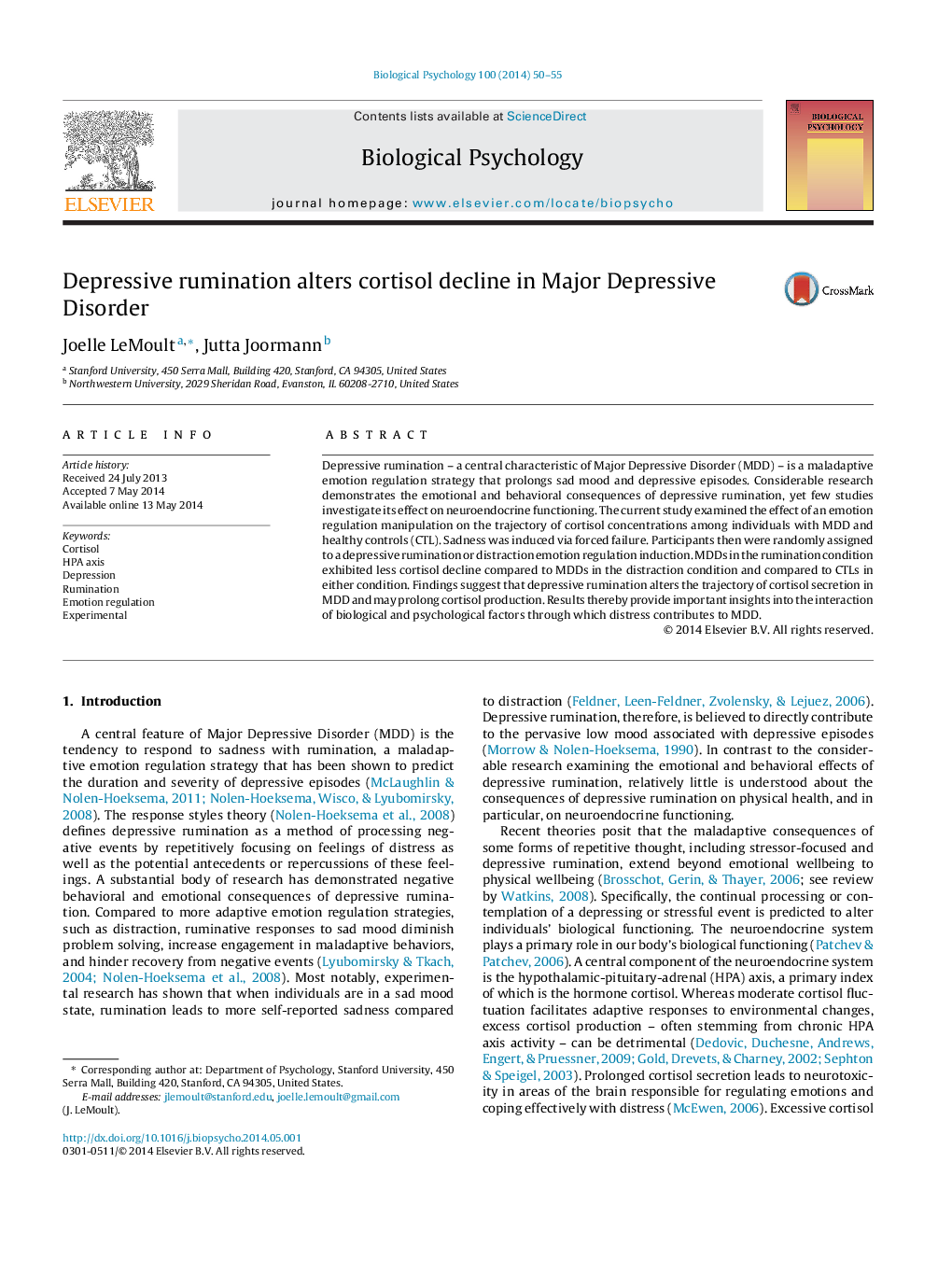| کد مقاله | کد نشریه | سال انتشار | مقاله انگلیسی | نسخه تمام متن |
|---|---|---|---|---|
| 920900 | 1473873 | 2014 | 6 صفحه PDF | دانلود رایگان |
• Examined the effect of a depressive rumination versus distraction induction on cortisol decline.
• Depressive rumination altered cortisol production in group with Major Depressive Disorder (MDD).
• Compared to distraction, depressive rumination hindered both emotional and cortisol decline.
• Findings advance integrative emotional–biological–cognitive models of depression.
Depressive rumination – a central characteristic of Major Depressive Disorder (MDD) – is a maladaptive emotion regulation strategy that prolongs sad mood and depressive episodes. Considerable research demonstrates the emotional and behavioral consequences of depressive rumination, yet few studies investigate its effect on neuroendocrine functioning. The current study examined the effect of an emotion regulation manipulation on the trajectory of cortisol concentrations among individuals with MDD and healthy controls (CTL). Sadness was induced via forced failure. Participants then were randomly assigned to a depressive rumination or distraction emotion regulation induction. MDDs in the rumination condition exhibited less cortisol decline compared to MDDs in the distraction condition and compared to CTLs in either condition. Findings suggest that depressive rumination alters the trajectory of cortisol secretion in MDD and may prolong cortisol production. Results thereby provide important insights into the interaction of biological and psychological factors through which distress contributes to MDD.
Journal: Biological Psychology - Volume 100, July 2014, Pages 50–55
